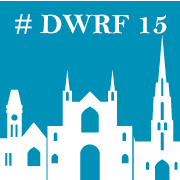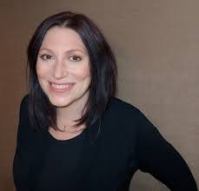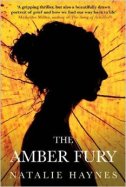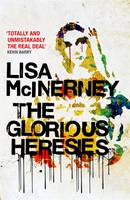When you win an award for teaching ...
It is a weird thing indeed. Teachers tend to go about their day to day business trying to engage and stimulate the minds of young people (one would hope we have these lofty goals, anyway!) It was very surprising to apply for and receive one of four
New Zealand Spelling Bee Awards for Teachers.
I'm very grateful. I'm looking forward to exploring what other schools do with curriculum; writing in particular. I really want to visit John Marsden's schools just out of Melbourne, but I have no idea if that's a goer or just a pie-in-the-sky dream; his
secondary school doesn't open until next year. Both
Candlebark and the latter have very different structures than most schools - writing for one will be a core subject at the new arts-focused secondary school.
It was interesting reading one perspective on writing as a core subject
here. I can understand how English teachers see themselves as readers over writers - writing is hard! Reading is (mostly) all pleasure. I've always tried to keep writing to model this practice for my students as I agree that teachers should be modelling what they want students to be doing themselves.
How exciting it is to think that school could support a life in arts in this way!
 |
| http://www.spellingbee.co.nz/teacher-awards |
For those who are interested, here's my application. It's been edited a little bit to take out some names and specifics that are unnecessary in this format.
The Spelling and
Language initiative
The English document in the New Zealand Curriculum is surprising, to some, in its
expectations. The first paragraph is
headed ‘What is English about?’ and
the very first sentence states that the subject is about ‘the study, use and enjoyment of the English language and
its literature …’ (italics added). Enjoyment?
At school? In English, no less? Whilst
this is an unusual and hefty ask (English is the only curriculum area that
lists ‘enjoyment’ as a criteria) it is this statement that has inspired me in
the creation of my English courses. In this
explanation, I will focus particularly on the language initiative that I have
developed over the five years I have spent in teaching in Dunedin. In particular, I will explain what is
happening in my Year 9 programme to foster a love of words, and spelling, in my
new-to-high-school students.
Students, by nature of age and inclination, want to have fun.
Most would endorse the use of the word ‘enjoyment’ in the New Zealand
Curriculum. And yet many find that high
school, in particular, starts to stifle a sense of fun that is perhaps still
present at primary and intermediate schools.
I think that enjoyment comes from freedom and space to create and be
creative. Even as adults, we flourish
when creative freedom is endorsed. Being
allowed the time to create and,
critically, evaluate is imperative to
a student’s growth of skill and enjoyment in both language use and mechanical
understandings – including spelling.
Lara Liesbeth’s
initiative – what it involves
Year 9 students at our school have four periods of English a week. One period is a library period, in which reading
and book discussions are prioritised and valued. Whilst this is not in any way my initiative,
it adds to the sense of freedom and enjoyment I am trying to nurture in my Year
9 programme. The support of the school is crucial.
For the three periods a week we have together in the
classroom, I start every lesson with free writing or reading. Thus, choice is immediately offered – a
crucial aspect of freedom and enjoyment. Generally, 75% of the class will
choose to write. Those that do not are
still engaging in ‘the use and enjoyment
of the English language’, as stated in the Curriculum. These readers are involved in the second
phase of the initiative. Approximately
20 minutes is given to this – 10 silently writing and 10 discussing. This discussion phase is the critical
component of the language initiative.
After 10 minutes writing, students are given the choice to
read their work aloud. At the start of
the year, there is a little shyness about this, but after two or three weeks, students
learn, through repetition (because this is happening every lesson, without
fail) and modelling from other students (ako) that my room is a safe space and
sharing is exciting and – that word again – fun.
As students share their work, all other students are actively
listening. I am constantly impressed
with how interested and supportive fellow students are of those who share their
writing. At the beginning of the year, I am the main commentator on the shared
work. I will pick one, sometimes two, clear
and critical decisions or techniques that are enhancing the work. This may be a language technique, or a choice
of vocabulary. It may be a plot device,
or a narrative strand. It all depends on
the writing that is offered up in that moment, in that class. The students are exposed to this key literacy
technique of ‘thinking aloud’, as articulated in Effective Literacy Strategies in Years 9-13: a teacher’s guide (81).
In this guide, the strategy of shared reading (reading with and talking
with students) is examined in the context of unfamiliar texts. My initiative is all about the close reading
of unfamiliar texts; for when students share their work, other students are
immediately exposed to an unfamiliar text.
The beautiful thing is that there is a real sense of ownership from the
student who is sharing – they produced the unfamiliar text for the class to
evaluate. Effective Literacy Strategies states that ‘… when students enjoy
learning and believe in their own … abilities, they are likely to engage with
their texts.’ (55). Note that, again, fun and enjoyment is discussed as a fundamental touchstone of language and
language learning. To model this, I also
write book reviews regularly and blog on the experience of teaching (Liesbeth, “Time
to change how we educate”).
As the year progresses, students become braver, and most
will eventually share their work. Not
only this, but students also start to critically evaluate other students work
in a safe environment. Evaluation is a
crucial thinking skill in Bloom’s taxonomy of cognitive processes (“Effective
Literacy Strategies” 94). When we ‘read between the lines’, we are ‘using
information to make judgments or form opinions; (we) justify, assess, decide; (we
ask) what is best …? What do you think …?’ (Ibid) Thus, literacy (including
spelling mastery, or at the very least, improvement) is enhanced.
The measurement of the effectiveness of this programme is
necessarily enigmatic. Text and meaning
are both co-created in the classroom in each specific lesson. The ‘magic’ of words and literature and
language is shared and co-constructed between student and student, and student
and teacher. Anecdotal evidence and formative assessment that suggests
learning is most definitely occurring. When
I see my Year 9 students hotly debating why ‘focussing’ should have one or two
s’s; why onomatopoeia is the best technique to use in THAT sentence in THAT
piece of writing, I can assess that love of language, words and (through whole
learning) spelling is happening. When
students are given real situations in which their work matters, learning and,
yes, fun, happens. And I think, as our Curriculum suggests,
that’s what it’s all about.
Lara Liesbeth
Works cited
Ministry of Education. Effective
Literacy Strategies in Years 9-13: a teacher’s guide. Wellington: Learning
Media, 2004. Print.
 |
| Part of the Otago Daily Times article on this prize. There are three other national recipients. |






















